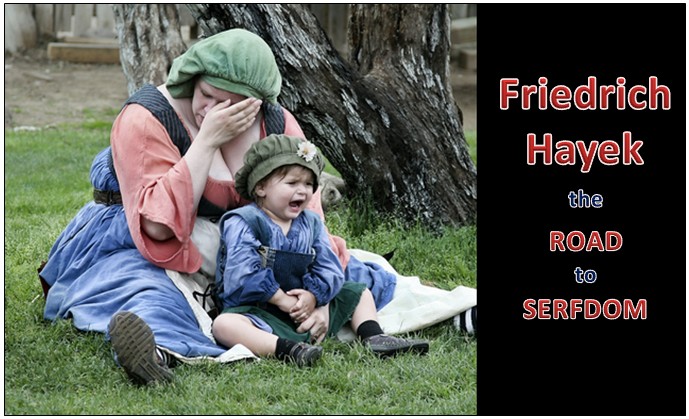
It is consequently always employed by those who seek, not merely support of a policy, but the unreserved allegiance of huge masses. The contrast between the "we" and the "they," the common fight against those outside the group, seems to be an essential ingredient in any creed which will solidly knit together a group for common action.

It seems to be almost a law of human nature that it is easier for people to agree on a negative program - on the hatred of an enemy, on the envy of those better off - than on any positive task. “It is in connection with the deliberate effort of the skillful demagogue to weld together a closely coherent and homogeneous body of supporters that the third and perhaps most important negative element of selection enters.

Hence the familiar fact that the more the state “plans”, the more difficult planning becomes for the individual.” If, on the other hand, the state were to direct the individual’s actions so as the achieve particular ends, its actions would have to be decided on the basis of the full circumstances of the moment and would therefore be unpredictable. But if the actions of the state are to be predictable, they must be determined by rules fixed independently of the concrete circumstances which can be neither foreseen nor taken into account beforehand and the particular effects of such actions will be unpredictable. If the individuals are able to use their knowledge effectively in making plans, they must be able to predict actions of the state which may affect these plans.


“The state should confine itself to establishing rules applying to general types of situations and should allow the individuals freedom in everything which depends on the circumstances of time and place, because only the individuals concerned in each instance can fully know these circumstances and adapt their actions to them.


 0 kommentar(er)
0 kommentar(er)
